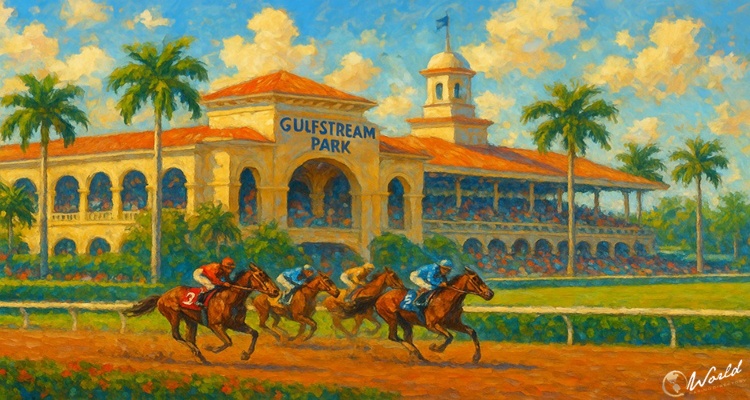Gulfstream Park Racing Association has taken its dispute over Florida’s 2021 Decoupling Act to the state’s highest court, asserting that the law unconstitutionally benefits competing slot machine operators while imposing unique restrictions on its own operations.
The Hallandale Beach racetrack, owned by 1/ST Racing and Gaming, filed suit against the Florida Gaming Control Commission, arguing that the legislation represents an unconstitutional “special law” under Article III, Section 10 of the state constitution. That section prohibits granting privileges to private corporations through tailored legislation. The complaint also alleges the law violates equal protection rights and the constitutional authority to operate slot machines granted to parimutuel facilities.
Law Removes Racing Requirement for Most, But Not Gulfstream
Enacted in 2021, the Decoupling Act freed seven parimutuel operators from the obligation to host live races or jai alai matches to retain their slot machine licenses. Gulfstream Park and Tampa Bay Downs, both thoroughbred racing venues, were excluded from that relief. Gulfstream is the only thoroughbred track in the state that operates slots, meaning the law’s carveout applies uniquely to its facility.
When Florida first allowed parimutuel operators to have slot machines in 2004, every license holder was required to run live racing or games. That changed after voters banned greyhound racing in 2018, when lawmakers allowed affected facilities to keep slot permits without offering live competition. The 2021 statute formalized that change but specifically left the live racing mandate in place for thoroughbred tracks, with penalties including license revocation for noncompliance.
Track Says It Faces Unfair Competitive Burden
“The law on its face is anti-free markets, with the government picking winners and losers with its legislation,” said Marie Long, general counsel for 1/ST, according to Florida Politics. “This is not about racing — we are committed to a sustainable future for racing. It’s about our inability to compete with the private slot operators who don’t have to meet the same obligations we must meet to run our business because they receive special treatment at our expense.”
Gulfstream backed legislation earlier this year to decouple thoroughbred racing from slot machine licensing requirements. That bill would have kept live racing at the track for at least five to seven years, but the proposal failed after Gov. Ron DeSantis signaled he would not support it.
With legislative action stalled, Gulfstream filed its lawsuit just days before a four-year statute of limitations on challenging the law expired. The suit asks the court to declare the law unconstitutional and to issue a permanent injunction preventing the Gaming Commission from enforcing the live racing requirement as a condition of Gulfstream’s slot license.
Industry Leaders Voice Opposition
The legal move has drawn sharp criticism from the Florida Thoroughbred Breeders’ and Owners’ Association. Its CEO, Lonny Powell, said in a statement: “Today’s news of Gulfstream Park’s court filing is deeply troubling. After benefiting for decades from the prestige and profits of Florida’s Thoroughbred industry, they’re now asking the courts to let them abandon it entirely.”
Powell warned that overturning the law “would open the floodgates; eroding Thoroughbred racing statewide, threatening family farms, rural jobs, and a multibillion-dollar agricultural economy.” He added that Gulfstream’s slot machine authorization was originally tied to its role in live racing, a relationship that has brought “substantial economic benefits to the state for generations.”
Gulfstream officials counter that they are not seeking to end live racing in Florida, and have said they remain committed to the sport. However, 1/ST executives have acknowledged exploring redevelopment options for the Hallandale Beach property, with the possibility of relocating live racing elsewhere in the state.
Gulfstream’s Broader Argument
In a statement accompanying the lawsuit, Gulfstream said that when slot machine legalization began, “all competitors were treated equally and given the same constitutional rights to have the machines so long as they ran live games or races.” The Decoupling Act, the track argues, “irrationally” imposed tougher terms on Gulfstream than on harness tracks, jai alai frontons, and other operators.
Long summed up the track’s position: “We believe the Legislature can and should resolve this matter fairly and swiftly, however we are seeking relief from the Court to protect and uphold the Constitutional rights granted to us by Florida voters in 2005. While we hope the Legislature acts promptly, we ask the Courts to ensure fairness and protect the principles of a free and competitive market.”


